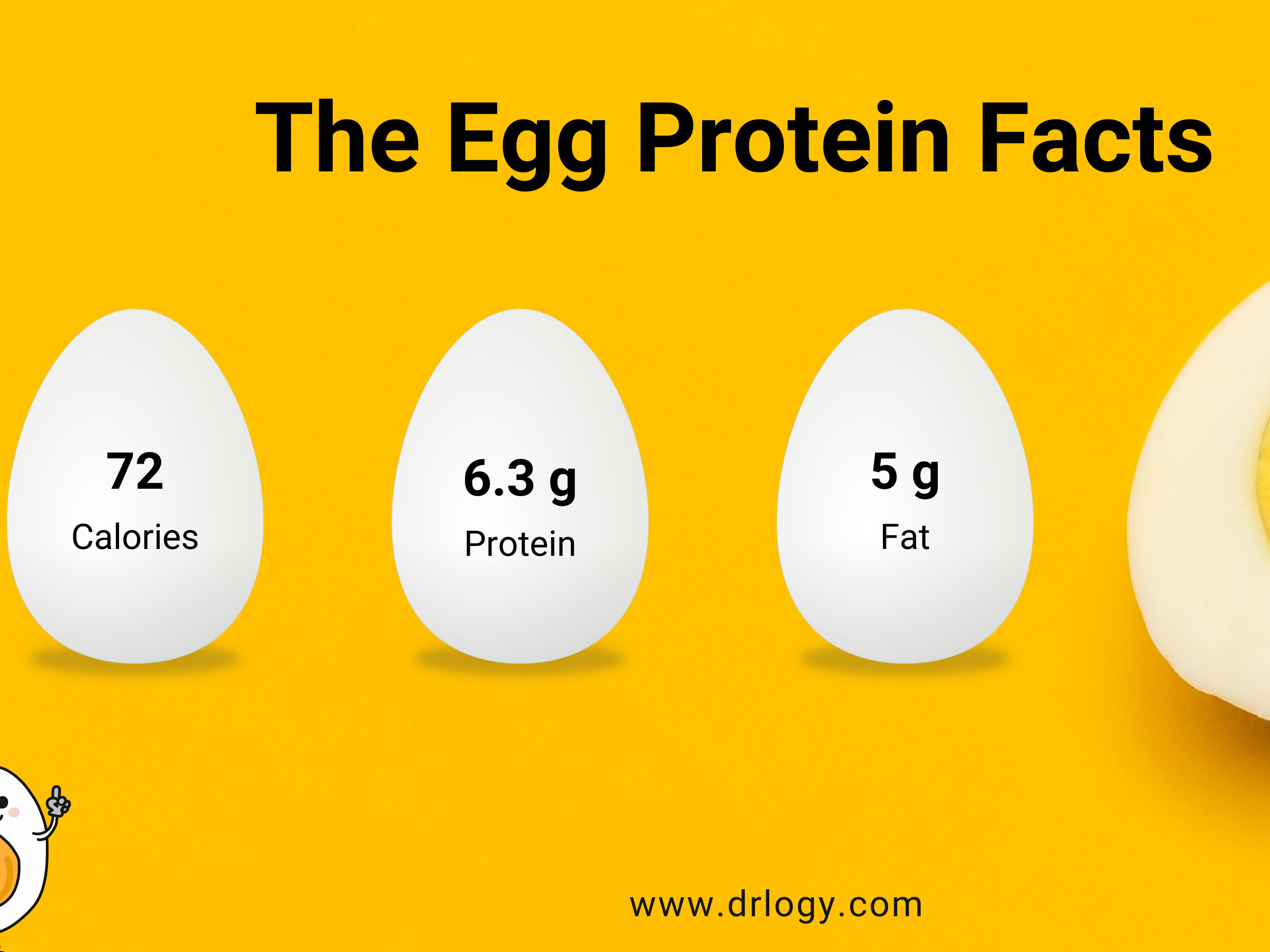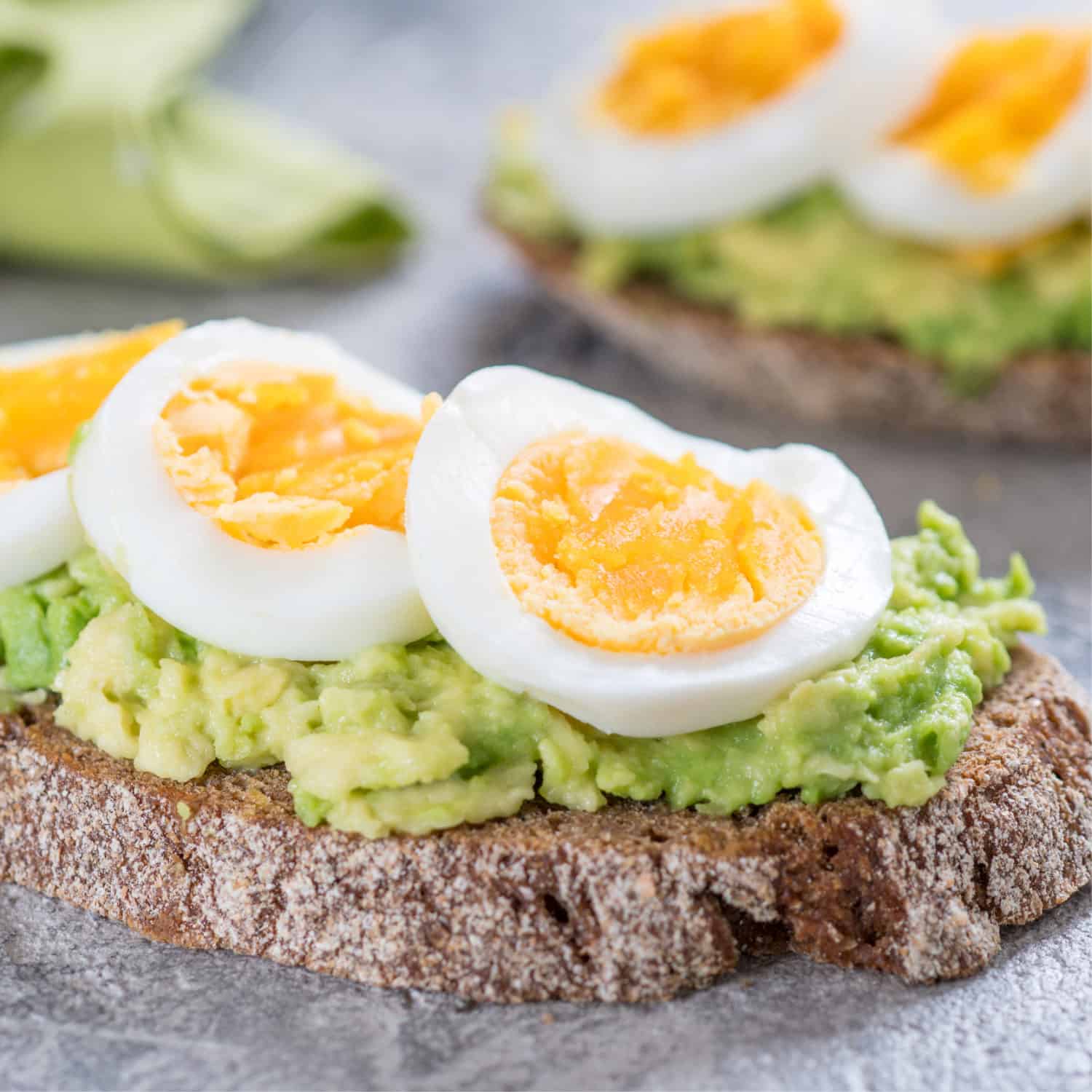Unleashing The Power Of Protein In One Egg: Your Ultimate Guide
Hey there, health enthusiasts! Have you ever stopped to think about just how packed with protein 1 egg really is? If you're anything like me, you’ve probably cracked open countless eggs without giving much thought to the nutritional powerhouse you’re holding in your hands. But let me tell ya, eggs are more than just breakfast staples—they're nature's multivitamin, packed full of essential nutrients, and a solid source of protein that can fuel your day. So, let’s dive in and uncover the incredible benefits of protein in just one egg, shall we?
Nowadays, people are all about protein, whether they're hitting the gym, trying to lose weight, or simply looking to maintain a balanced diet. Protein is the building block of life, and eggs are one of the easiest ways to get it into your system. But how much protein is in 1 egg, and why does it matter? Stick around, because we’re about to break it all down for you, step by step, in a way that’s easy to digest—pun intended.
Before we go any further, let’s clear something up: this isn’t just another boring article about nutrition. We’re going to make this fun, informative, and super actionable. By the time you finish reading, you’ll not only know how much protein is in 1 egg but also how to incorporate it into your daily routine, why it’s important, and what other benefits eggs bring to the table. Ready? Let’s get cracking!
- Wochenende Gerettet Lustige Sprche Fr Dich Tipps
- Edin Gaanin Vom Flchtling Zum Drogenboss Die Ganze Story
Why Protein Matters: The Big Picture
Alright, let’s start with the basics. Protein is one of the three macronutrients your body needs to survive, alongside carbohydrates and fats. It’s what keeps your muscles strong, your skin glowing, and your hair shiny. Without enough protein, your body would struggle to repair itself, build new tissues, or even produce enzymes and hormones. But here’s the kicker: your body doesn’t store protein like it does fat or carbs. That means you need to consume it regularly to keep your systems running smoothly.
How Much Protein Do You Really Need?
So, how much protein should you be eating every day? Well, that depends on a bunch of factors, like your age, weight, activity level, and overall health goals. The general guideline is about 0.8 grams of protein per kilogram of body weight, but if you’re hitting the gym hard or trying to build muscle, you might need more. And guess what? Eggs can help you hit those protein targets without breaking the bank.
Protein 1 Egg: The Nutritional Breakdown
Let’s get down to business. How much protein is in 1 egg, exactly? On average, a large egg contains about 6 grams of high-quality protein. That might not sound like a lot, but when you consider that most people eat more than one egg at a time, it adds up pretty quickly. Plus, the protein in eggs is complete, meaning it contains all nine essential amino acids your body needs but can’t produce on its own.
- Sins N Lashes Wimpernserum Lifting Erfahrungen Mehr
- Geheimnis Gelftet Vegane Schoko Mousse Mit Seidentofu So Einfach
Where Does the Protein in Eggs Come From?
Now, here’s something interesting: the protein in eggs is distributed between the yolk and the white. The egg white contains about 3.6 grams of protein, while the yolk contributes around 2.7 grams. So, if you’re looking to maximize your protein intake, you’ll want to eat the whole egg, not just the white. And don’t worry, the yolk is full of healthy fats and other nutrients that are good for you too.
Health Benefits of Protein in Eggs
Okay, so we’ve established that eggs are a great source of protein, but what exactly does that mean for your health? Let’s break it down:
- Muscle Building: Protein is essential for building and repairing muscle tissue, making eggs a great pre- or post-workout snack.
- Weight Management: High-protein foods like eggs can help you feel full longer, reducing the temptation to snack between meals.
- Improved Brain Function: Eggs contain choline, a nutrient that supports brain health and cognitive function.
- Heart Health: Contrary to popular belief, eggs can actually be good for your heart when consumed in moderation, thanks to their protein and nutrient content.
Debunking the Cholesterol Myth
For years, people have been scared off eggs because of their cholesterol content. But here’s the thing: recent research has shown that dietary cholesterol doesn’t have as big an impact on blood cholesterol levels as we once thought. In fact, for most people, eating eggs in moderation won’t raise their cholesterol or increase their risk of heart disease. So, go ahead and enjoy your eggs without guilt!
How to Incorporate Eggs into Your Diet
Now that you know how awesome eggs are, you’re probably wondering how to fit them into your daily routine. The good news is, eggs are incredibly versatile. You can cook them in dozens of ways, from scrambling and frying to baking and boiling. Here are a few ideas to get you started:
- Scrambled eggs with spinach and feta for a protein-packed breakfast.
- Hard-boiled eggs as a quick and easy snack.
- Egg salad sandwiches for lunch on the go.
- Omelets filled with veggies and cheese for a hearty dinner.
Protein-Packed Recipes Featuring Eggs
If you’re looking to up your egg game, here are a couple of recipes to try:
Shirred Eggs with Avocado Toast: Crack two eggs into a ramekin, sprinkle with salt and pepper, and bake until set. Serve on top of whole-grain toast smeared with mashed avocado for a protein-rich breakfast that’ll keep you full until lunch.
Egg Fried Rice: Sauté some chopped veggies in a pan, add cooked rice, and stir in a couple of beaten eggs. Cook until the eggs are set, and you’ve got yourself a quick and delicious meal that’s packed with protein and flavor.
Protein 1 Egg vs. Other Protein Sources
So, how does the protein in 1 egg stack up against other protein sources? Let’s compare:
- Chicken Breast: A 3-ounce serving of chicken breast contains about 26 grams of protein, making it a great option for high-protein meals.
- Quinoa: One cup of cooked quinoa contains around 8 grams of protein, making it a good plant-based option.
- Greek Yogurt: A 6-ounce serving of Greek yogurt can contain up to 17 grams of protein, depending on the brand.
While eggs might not have as much protein per serving as some other foods, they’re still an excellent choice because they’re affordable, easy to prepare, and packed with other nutrients.
The Cost-Effectiveness of Eggs
Let’s talk about money for a sec. Eggs are one of the cheapest sources of high-quality protein out there. You can usually buy a dozen eggs for just a few bucks, making them a great option for people on a budget. Plus, they’re easy to store and have a decent shelf life, so you don’t have to worry about them going bad too quickly.
Common Myths About Eggs and Protein
There are a lot of myths floating around about eggs and protein, so let’s clear a few of them up:
- Eggs Are High in Fat: Yes, eggs do contain fat, but it’s mostly the healthy kind that your body needs. Plus, the fat in eggs helps your body absorb certain nutrients better.
- You Should Only Eat Egg Whites: While egg whites are a good source of protein, you’re missing out on a lot of other nutrients if you skip the yolk. The yolk contains vitamins, minerals, and healthy fats that are essential for your health.
- Eggs Are Bad for Your Heart: As we mentioned earlier, recent studies have shown that eggs don’t have as big an impact on heart health as previously thought. In fact, they can be part of a heart-healthy diet when consumed in moderation.
The Truth About Egg Whites
While egg whites are a great source of protein, they’re not the be-all and end-all of egg nutrition. The yolk contains a ton of important nutrients, including vitamin D, B vitamins, and healthy fats. So, if you’re only eating egg whites, you’re missing out on a lot of what makes eggs so great.
Conclusion: Crack Open the Power of Eggs
There you have it, folks! Eggs are more than just a breakfast staple—they’re a nutritional powerhouse packed with protein and other essential nutrients. Whether you’re trying to build muscle, lose weight, or just maintain a healthy diet, eggs are a great option. And the best part? They’re affordable, easy to prepare, and super versatile.
So, the next time you’re at the grocery store, don’t forget to pick up a carton of eggs. Your body will thank you! And if you’ve learned something new today, be sure to share this article with your friends and family. Who knows? You might just inspire someone else to crack open the power of eggs too.
Table of Contents
- Why Protein Matters: The Big Picture
- How Much Protein Do You Really Need?
- Protein 1 Egg: The Nutritional Breakdown
- Where Does the Protein in Eggs Come From?
- Health Benefits of Protein in Eggs
- Debunking the Cholesterol Myth
- How to Incorporate Eggs into Your Diet
- Protein-Packed Recipes Featuring Eggs
- Protein 1 Egg vs. Other Protein Sources
- The Cost-Effectiveness of Eggs
- Common Myths About Eggs and Protein
- The Truth About Egg Whites
- Verhaltensweisen Verstehen Ein Umfassender Leitfaden
- Patrick Thomalla Comedy Tickets Mehr Nicht Verpassen

How Much Protein in an Egg

How Much Protein in one Egg, Egg White & Egg Yolk? Drlogy

How Much Protein in an Egg and 11 Foods With More Protein Dr. Axe